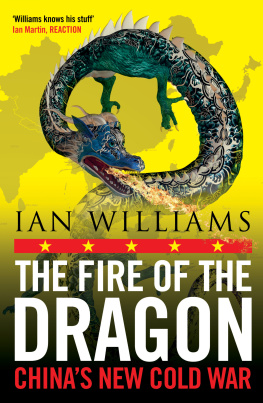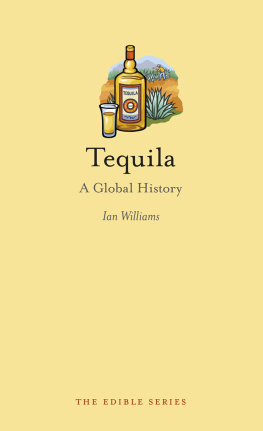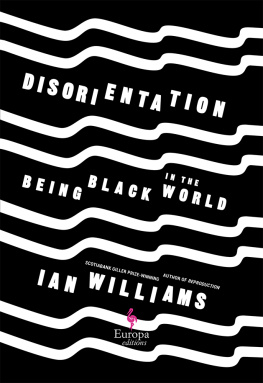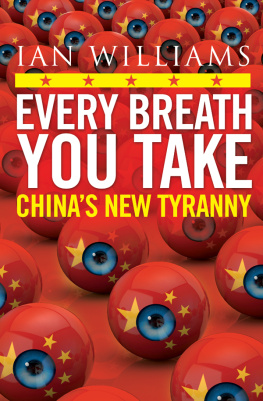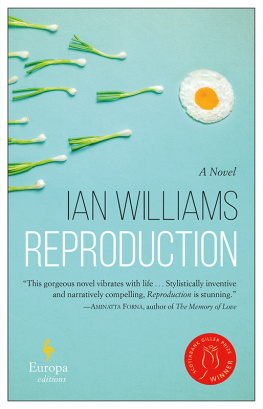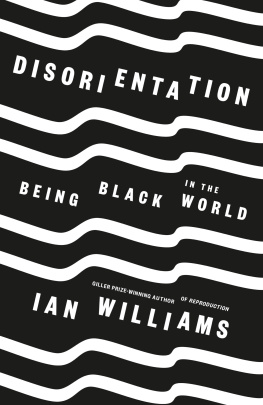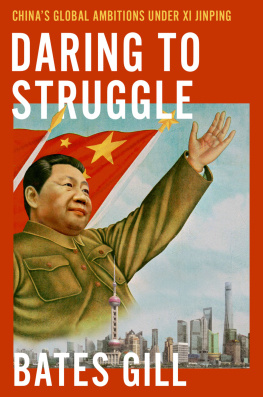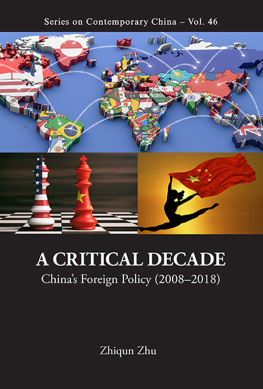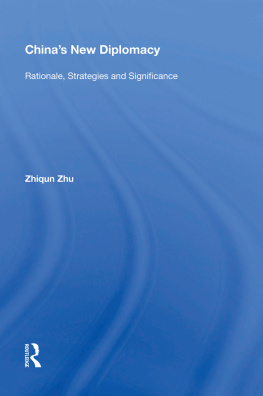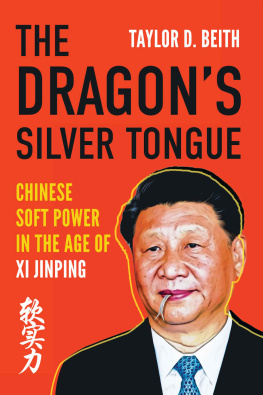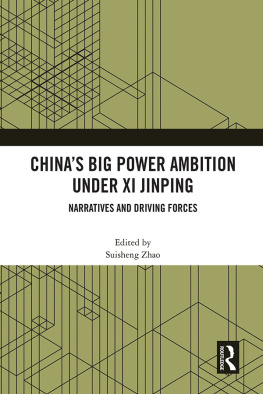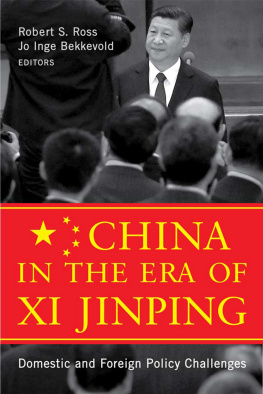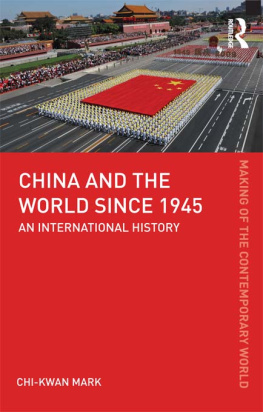Contents
Guide
Ian Williams was a foreign correspondent for Channel 4 News, based in Russia (199295), and Asia (19952006). He then joined NBC News as Asia Correspondent (20062015), working from bureaus in Bangkok and Beijing. As well as reporting from China and across the region, he covered conflicts in the Balkans, the Middle East and Ukraine, and won an Emmy and BAFTA awards for his discovery and reporting on the Serb detention camps during the war in Bosnia. His previous book. Every Breath You Take: Chinas New Tyranny, was published to critical acclaim in 2021.
Praise for Every Breath You Take: Chinas New Tyranny
Superb and deeply informed... a chilling reminder to all who believe in the rule of law and an open society of Chinas present threats to our way of life
Chris Patten, Governor of Hong Kong, 199297
Williams knows his stuff. This is an accessible, valuable, troubling, timely book
Ian Martin, Reaction
A persuasive, alarming wake-up call
Irish Times
A superb book
Benedict Rogers, chief executive, Hong Kong Watch
Fascinating... a really interesting book
Stig Abell, Times Radio
First published in 2022 by
Birlinn Limited
West Newington House
10 Newington Road
Edinburgh
EH9 1QS
www.birlinn.co.uk
Copyright Ian Williams 2022
The right of Ian Williams to be identified as Author of this work has been asserted by him in accordance with the Copyright, Designs and Patents Act 1988.
All rights reserved. No part of this publication may be reproduced, stored or transmitted in any form without the express written permission of the publisher.
ISBN: 9781788855143
British Library Cataloguing-in-Publication Data
A catalogue record for this book is available from the British Library
Typeset by Initial Typesetting Services, Edinburgh
Papers used by Birlinn are from well-managed forests and other responsible sources
Printed and bound by Clays Ltd, Elcograf S.p.A.
Contents
Acknowledgements
The ambition of the Chinese Communist Party is broad and growing, and that is reflected in the scope of this book. Much of it is drawn from many years travelling and reporting from China and across Asia, bearing witness as Beijing flexed its muscles overseas and increased its repression at home. I am indebted to the many people who have shared their insights and been so generous with their time. They are too numerous to name individually, and many anyway prefer anonymity. It is safer that way. The Party is a capricious and vengeful organisation increasingly so under Xi Jinping. It is intolerant of criticism, wherever that comes from. Speaking up can incur considerable cost and this book is dedicated to those with the courage to do so.
In many ways the themes of this book build upon those of Every Breath You Take: Chinas New Tyranny, my earlier study of the surveillance state. Understanding China and the threat it poses is more important than ever and special thanks are due to Hugh Andrew of Birlinn, who immediately recognised this. Many thanks also to my editor, Andrew Simmons, for his deft touch and expertise; and to my agent, Andrew Lownie, for his enthusiasm and encouragement throughout. Lastly, a big thank you to my family for their support and feedback as this manuscript took shape.
Ian Williams
June 2022
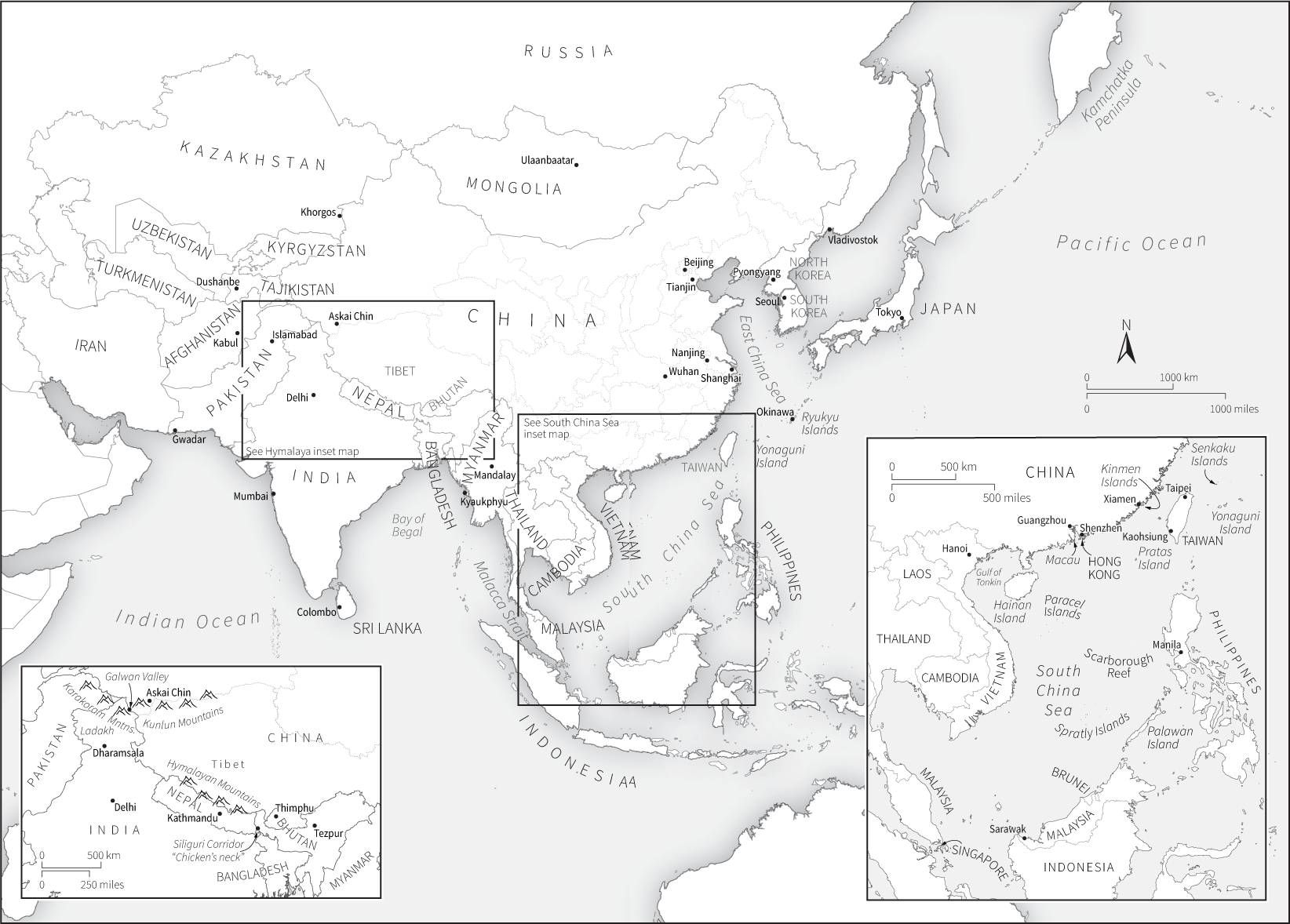
INTRODUCTION:
Chinas New Cold War
We will never allow anyone to bully, oppress or subjugate China. Anyone who dares to try to do thatwill have their heads bashed bloody against the Great Wall of Steel forged by over 1.4 billion Chinese people.
Xi Jinping, in a Tiananmen Square speech marking the 100th anniversary of the Communist Party, 1 July 2021
There was no snow-swept Glienicke Bridge, Berlins famous bridge of spies, over which so many prisoner exchanges took place during the last Cold War. No slow, tense walk to freedom so beloved by Hollywood film-makers. But the choreography was familiar enough, and their two aircraft could well have passed in the night. Hers was a specially chartered Air China jet from Vancouver to the southern Chinese city of Shenzhen, where she was welcomed back with flowers and a cheering flag-waving crowd. The two Canadians were flown home from China in a Royal Canadian Air Force Challenger aircraft and greeted in Calgary by Prime Minster Justin Trudeau. Youve shown incredible strength, resilience, and perseverance, he told them. It was 25 September 2021, the first prisoner swap of Chinas new Cold War, and from the Communist Partys perspective a triumph of hostage diplomacy.
Meng Wanzhou was the chief financial officer of Huawei, the Chinese technology giant, which is closely linked to the Communist Party. She is also the eldest daughter of the companys founder and chief executive, Ren Zhengfei, a former army officer and a Party member. Meng, dubbed the princess of Huawei, was arrested at the request of US prosecutors while changing aircraft in Vancouver in December 2018. The US sought her extradition, accusing her of fraud relating to Huaweis dealings with Iran, which is under American sanctions. Ten days after
Mengs lengthy extradition hearings were slow, but hardly uncomfortable for her. It was a judicial process, heard in open court and freely reported upon. She had top legal representation, was given bail and allowed to live in her C$13 million Vancouver mansion. She could receive visitors, including her children and husband, who were given special permission to enter Canada during the Covid-19 pandemic, and she could go out during the day. In China, the Two Michaels, as they became known, were held in grim concrete cells initially without access to families or lawyers. They were granted a single consular visit per month. For their first six months they were kept in solitary confinement in an interrogation centre run by the Ministry of State Security. After one and a half years, they were formally charged with espionage by a closed court, though no evidence was presented. Spavor was found guilty and sentenced to eleven years in prison; Kovrig was waiting to be sentenced at the time of his release.
In September 2021, Meng reached a deal with US prosecutors. Charges against her were conditionally dropped, but were retained against Huawei, which the US regards as an arm of the Chinese state. These charges included fraud, sanctions busting and economic espionage. The deal paved the way for Mengs release from house arrest, and for the near simultaneous freeing of the Two Michaels from their grim cells. Washington insisted there was no direct link, and was keen to discourage the Cold War comparisons, but the parallels were unmistakable.
A month after the Two Michaels were freed, General Mark Milley, chairman of the US Joint Chiefs of Staff, used a Cold War metaphor to describe a Chinese weapon test, which appeared to be more advanced than comparable American systems and stunned US officials. He said it was very close to being a Sputnik moment for the US a reference to the shock of the Soviet Unions first successful launch of a space satellite in 1957.
At the time, the US was reassessing how it could best defend the democratic self-governing island of Taiwan in the event of a Chinese invasion or blockade. The island was coming under increasing pressure, including the almost daily despatch by Beijing of waves of fighter jets and bombers designed to intimidate the island and test its defences. There were comparisons to West Berlin, a city that was emblematic of the long stand-off with the Soviet Union during the last Cold War. It was argued that the very existence of lively, democratic Taiwan was seen by the Chinese Communist Party as an existential threat in much the same way that the walled-off German city once rankled with Moscow, and that Taiwan was equally deserving of support. To many in Washington, Chinas nuclear moves contained a thinly disguised message that America was deluding itself if it thought a conflict over the island could be contained to the immediate area and not endanger the American homeland.

